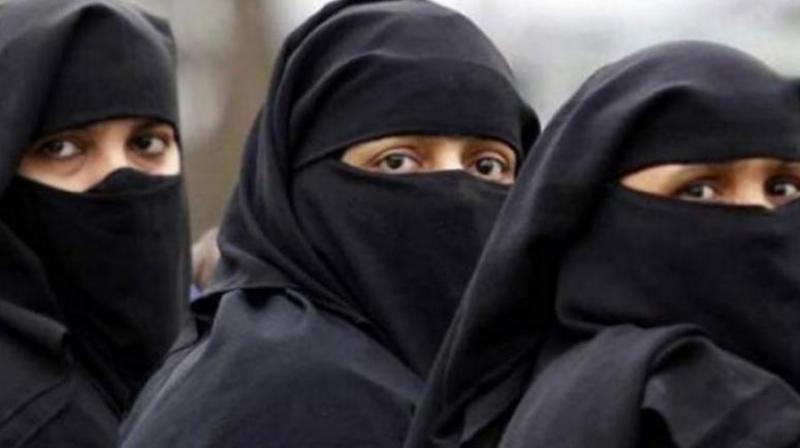Triple talaq case: Women can opt out, says Muslim body
During the hearing the judges had a copy of Quran in English for reference as the arguments centered around Quran and Islamic personal laws.

New Delhi: Even as the Supreme Court reserved its verdict on triple talaq, the All India Muslim Personal Law Board (on Thursday agreed to the court’s suggestion to include a clause in the nikahnama (marriage agreement) about instantaneous triple talaq.
Kapil Sibal, senior counsel representing AIMPLB, informed the five-judge bench headed by Chief Justice of India J.S. Khehar that the Board had agreed to issue an advisory to kazis to give to Muslim women an option to remain out of instant triple talaq while their consent is sought for nikah. “I had a meeting with the Board members. We will send a model nikahnama to all the kazis to follow,” Mr Sibal told the court while concluding his arguments.
Muslim Law Board told to file copy of advisory on triple talaq issue
On Wednesday, the CJI J.S. Khehar had asked counsel Kapil Sibal whether his client, the AIMPLB, could issue a directive to clerics to record at the time of the nikahnama whether the woman accepts triple talaq or not, and Mr Sibal returned with a positive response a day later.
The bench, also comprising Justices Kurian Joseph, Rohinton Nariman, Uday Lalit and Abdul Nazeer, asked the Board to file a copy of the advisory to be sent as well as a copy of the proposed nikahnama.
The triple talaq hearing on a batch of petitions filed by Muslim Women's Quest for Equality and others was completed in six record days by the Constitution Bench sitting during summer vacations.
The CJI, while reserving the verdict, thanked all the lawyers, including attorney general Mukul Rohatgi, Mr Sibal, Anand Grover, Indira Jaising, A.S. Chadha, Arif Mohd. Khan, Balaji Srinivasan and V.K. Biju, for their assistance to finish the hearing expeditiously.
During the hearing the judges had a copy of Quran in English for reference as the arguments centered around Quran and Islamic personal laws.
When Justice Kurian Joseph asked Mr Sibal, “Why it is that a custom which is theologically sinful is part of the practice of the community?,” he replied, “It may be sinful but it is a practice in existence for 1,400 years. We don't want the court to enter a slippery slope. Court should not venture into the area and interpret something which is not in its domain. Personal law, customs and faith cannot be tested under the garb of fundamental rights."
When the court pointed out that triple talaq does not have the sanction of Holy Quran, Mr Sibal said the Quran is not the only source of Islam, which had developed through Hadiths and expositions of various scholars on the teachings of the Prophet.
On Wednesday, Mr Sibal cautioned the court from deciding this issue as it could lead to a backlash from the Muslim community, which might view it as its rights being infringed upon and resort to supporting practices like polygamy and oral divorce.
Justice Joseph told Mr Sibal, “Triple talaq is sinful. How can something which is sinful to God can be virtuous? If it is bad in theology it cannot be acceptable?” Mr Sibal said that the court should be concerned with institutional morality and not popular morality.
Attorney general Mukul Rohatgi, appearing for the Centre, had asserted that the issue of triple talaq should not be seen as discrimination between majority and minority communities or the majority forcing its views on minorities.
“It is a tussle between haves and have-nots within the system. It is intra-community struggle between men and women because men are more resourceful, earner and educated,” he said.

